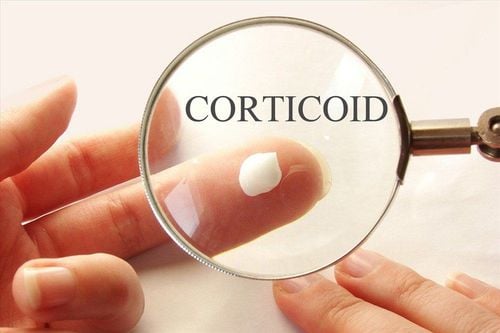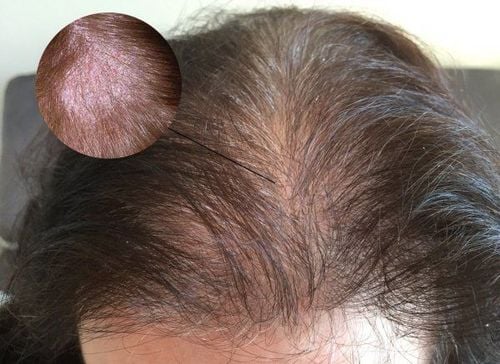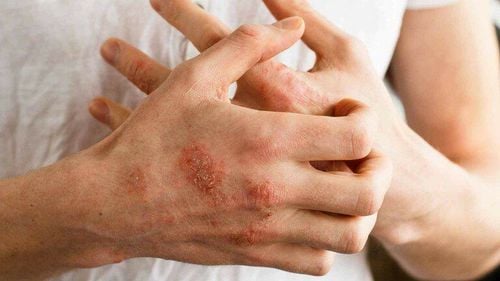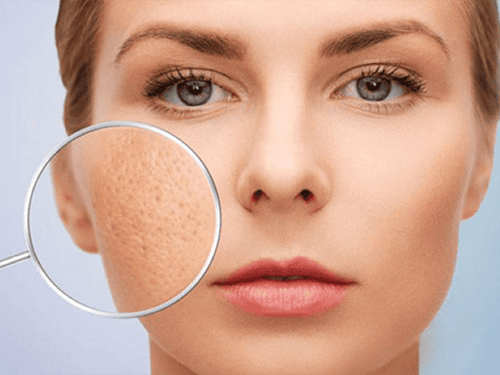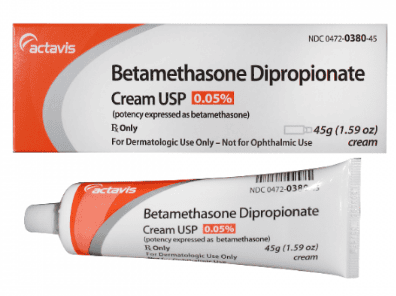This is an automatically translated article.
Psoriasis is a chronic skin disease, but if not well controlled, in addition to skin lesions, complications of psoriasis in other organs of the body will seriously affect health healthy patient.
1. Complications of Psoriasis
Normally, when old skin cells die, they are replaced by new cells. Psoriasis is a chronic skin disease in which skin cells regenerate and grow 10 times faster than normal. Old and new skin cells fail to replace, and pile up, forming thick, red, scaly patches of white or silvery skin that are itchy and painful. Psoriasis is a very common and recurrent disease. It is estimated that worldwide, the disease affects 2-3% of the population with about 125 million people affected. In Vietnam, the prevalence of psoriasis accounts for 5-7% of the total number of patients visiting dermatology clinics.
Psoriasis is a systemic disease, if not well controlled, the disease will seriously affect the skin and cause many complications on other organs, seriously affecting health. The common complications of psoriasis are:
1.1. Complications on bones and joints
Arthritis is a common complication of psoriasis. Psoriatic arthritis occurs in 10-30% of patients with psoriasis. Symptoms of psoriatic arthritis are:
Redness and swelling of joints in fingers, toes, elbows, spine. Joints are painful and stiff, especially in the morning upon waking. The pain occurs more often in the heel, the ligaments that attach to the bone, the inside of the foot and the places where the tendons are. Patients with reduced mobility, fatigue When severe psoriasis can lead to spondylitis, pain in the spine, pelvis, ankylosing spondylitis affecting ligaments, joints and tendons in the column living.
1.2. Cardiovascular complications
Psoriasis can affect the cardiovascular system and increase the risk of high blood pressure. Some studies show that people with psoriasis have 3 times more heart attacks than normal. The prevalence of high blood pressure in people with psoriasis is 20% and severe psoriasis is 47%.
Besides, some drugs used to treat psoriasis have side effects that increase blood cholesterol, increase the risk of cardiovascular complications such as stroke, heart attack, ..
1.3. Endocrine complications
Psoriasis increases the risk of developing type 2 diabetes. Psoriasis can increase insulin levels in the blood, making the body resistant to insulin. The risk of diabetes increases with the severity of the psoriasis.
Psoriasis also increases the risk of other metabolic disorders such as obesity, hyperlipidemia, fatty liver,...
1.4. Complications on the kidneys
Some psoriasis patients develop complications that cause kidney failure. In addition, if the patient arbitrarily uses the drug for treatment, the treatment is not according to the doctor's instructions, the risk of kidney damage due to the drug is very high. This is a particularly serious complication of psoriasis, if not detected and treated in time, the damage for a long time will lead to the risk of irreversible kidney damage.
1.5. Complications on vision
If you have psoriasis on your eyelids, it can lead to itching, burning, dry eyes and pupil movement disorders. Psoriasis also increases the risk of uveitis, blepharitis, and conjunctivitis. If not treated in time, it can lead to impaired vision or even blindness.
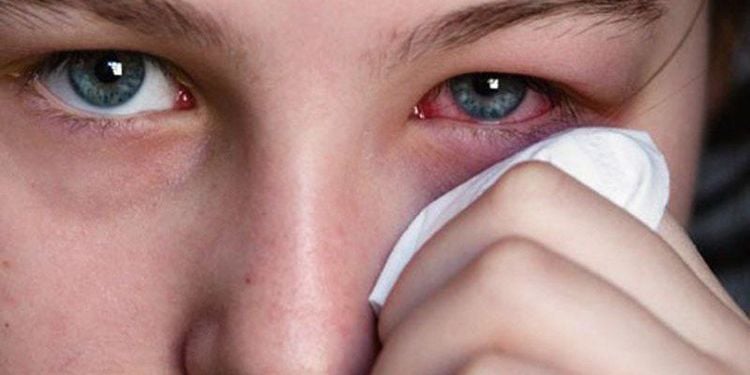
Viêm kết mạc là một trong những biến chứng của bệnh vảy nến
Psoriasis patients have a high risk of hearing diseases that impair hearing. Psoriasis can damage the inner ear and lead to hearing loss.
1.7. Oral Complications
Psoriasis can cause mucous membranes in the oral cavity, common lesions are cracked tongue, damage to the gums and inside of the cheeks.
1.8. Affects emotions and psychology
Psoriasis patients often have low self-esteem because of physical injuries. Worrying about the illness, low self-esteem, and lack of communication make the patient tired, which can lead to negative thoughts and depression.
shrinking, afraid to communicate because of guilt
2. Solution to control psoriasis complications
Treatment of psoriasis is a dilemma, although many new drugs and treatments have been introduced, there is no cure for the disease completely. Current treatments are mainly aimed at reducing inflammation, controlling skin cell proliferation, prolonging the disease's stability, and controlling the complications of psoriasis.
To prevent disease progression and the risk of complications, patients need to adhere to the treatment as directed by the doctor. The most commonly used treatment methods are:
Using topical drugs to help scabs, against parakeratosis: the commonly used drugs are salicylic ointment 2%,3%, 5%; Goudron topical; corticosteroid ointment; topical Anthralin,... Each drug has its own advantages and disadvantages, depending on the patient's skin damage, the doctor will appoint the appropriate topical drug. Use systemic drugs: Methotrexate, Cyclosporin A, Retinoid,... these are immunosuppressive, anti-inflammatory drugs that help relieve symptoms quickly. However, patients must be aware of the side effects of the drug. Photochemotherapy: the patient will be given a light-sensing drug, then 2 hours later, ultraviolet rays of 320-400 nm will be radiated into the psoriasis area. This method helps to clean the lesions quickly, anti-mitotic, safe and less toxic.

Để kiểm soát bệnh vảy nến, người bệnh nên duy trì lối sống lành mạnh, kiểm soát cân nặng
Along with treatment methods, to control psoriasis well, patients need to actively change their lifestyle. Avoid alcohol, tobacco and stimulants. Protect skin, cover skin carefully when going outdoors, avoid skin scratches. Increase exercise, control weight, lose weight if you are overweight or obese. Avoid stress, keep calm, optimistic, avoid stress before illness.
To register for examination and treatment at Vinmec International General Hospital, you can contact Vinmec Health System nationwide, or register online HERE
MORE:
Causes of disease Psoriasis Treatment Options Is Scalp Psoriasis contagious with no treatment?




